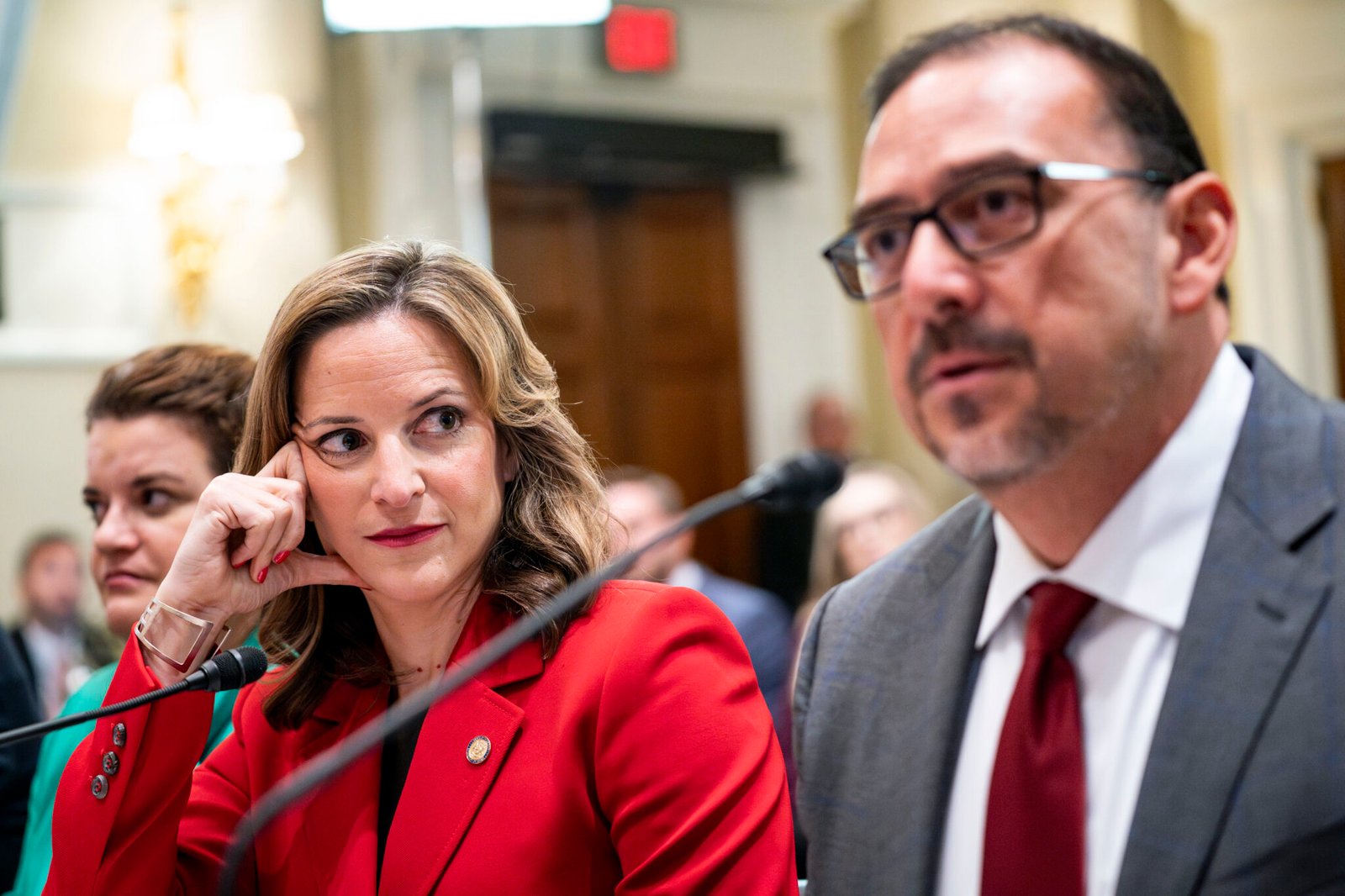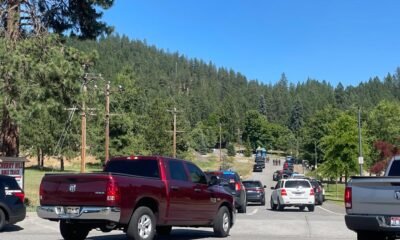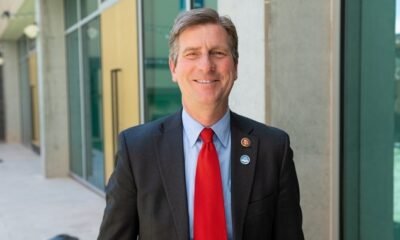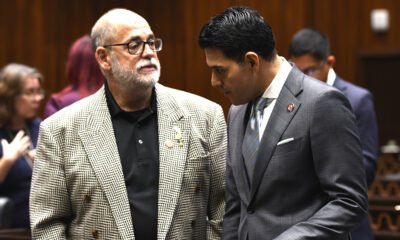2024 election
Election Workers Face Rising Threats as November Approaches, Congressional Hearing Reveals

WASHINGTON — During a House Administration Committee hearing on Wednesday, Republicans emphasized the need for legislation that bars non-citizens from voting, despite it already being illegal. They argue that such measures are crucial in preparation for the upcoming November elections.
Democratic secretaries of state from key battleground states, however, voiced greater concern over the threats they and their election staff face due to widespread election misinformation. Adrian Fontes of Arizona, Jocelyn Benson of Michigan, and Maggie Toulouse Oliver of New Mexico asserted that non-citizen voting is not a significant issue, countering the Republican narrative.
“There’s no evidence that noncitizens are voting. If that were the case, it would be easily verifiable through public voting records,” Benson stated, pointing out that numerous organizations have failed to provide credible evidence despite substantial financial efforts to prove otherwise.
The discussion was further complicated by the ongoing ramifications of former President Donald Trump’s claims regarding the 2020 election, which have fueled threats and fostered distrust in election processes. These claims culminated in the January 6th Capitol insurrection, where a mob attempted to halt the certification of electoral results.
On the flip side, Republican secretaries of state, including Frank LaRose of Ohio, contended that federal laws requiring proof of citizenship for voter registration are essential for upholding election integrity. Research indicates that voting by non-citizens is exceedingly rare. “It’s rare, but we keep it that way by enforcing the law,” LaRose emphasized.
The hearing’s backdrop included House Republicans’ efforts to link H.R. 8281—passed in July and requiring proof of citizenship for voter registration—to an emergency government funding bill. Although a vote was initially scheduled, House Speaker Mike Johnson withdrew it due to insufficient support, setting the stage for its likely failure in the Senate where President Joe Biden has signaled a veto.
Meanwhile, GOP-led states plan ballot initiatives this November aimed at prohibiting non-citizen voting. This strategy aligns with Trump’s immigration-focused campaign narrative, wherein he wrongfully attributes his 2016 popular vote loss to non-citizen participation.
The urgency heightened as Joe Morelle, the top Democrat on the committee, noted the impending election timeline, with overseas military ballots scheduled for distribution and early voting approaching. He expressed alarm over threats directed at election officials and the pervasive misinformation undermining trust in the electoral process.
“Election officials are coping with an environment filled with ongoing disinformation,” Morelle remarked, stressing that some political figures have sowed doubt about election fairness, thereby eroding public confidence.
Morelle also underscored the need for reliable funding to support election security, pointing out that Congress had allocated approximately $55 million for election grants in FY 2024. Oliver and Benson echoed that a consistent federal funding stream is vital for combating misinformation and ensuring elections run smoothly.
In contrast, Republican lawmakers criticized a three-year-old executive order from President Biden aimed at simplifying voter registration, labeling it as partisan and an advantage for Democrats. Some GOP representatives proclaimed that federal involvement in voter registration should be limited, leveraging this sentiment to amplify concerns about electoral integrity.
Amidst these discussions, the safety of election personnel became a focal point. California Democratic Rep. Norma Torres raised alarms over threats to election workers. Benson recounted distressing personal experiences, revealing how misinformation had triggered intimidation tactics against her and her family.
“That’s the reality we live with,” Benson expressed, articulating fears that have persisted over the past several years. The current climate reflects substantial anxieties not only regarding electoral processes but also concerning the personal safety of those tasked with administering them.

















